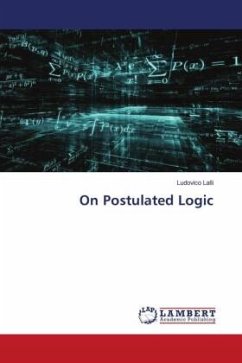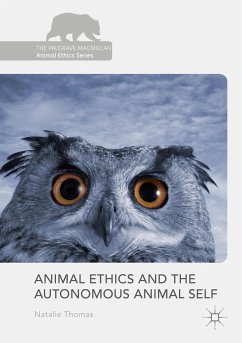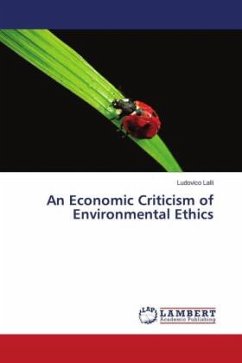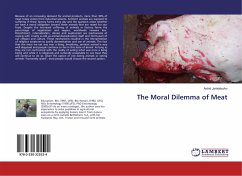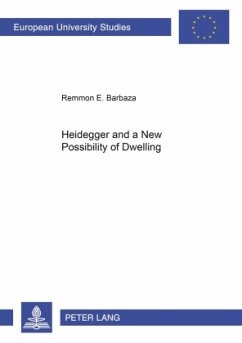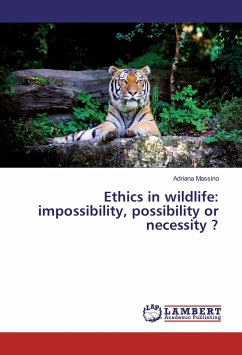
Ethics in wildlife: impossibility, possibility or necessity ?
Versandkostenfrei!
Versandfertig in 6-10 Tagen
24,99 €
inkl. MwSt.

PAYBACK Punkte
12 °P sammeln!
Nature can be extremely cruel. Every day, millions of animals are chased and killed by their predators, a phenomenon entirely regulated by the law of the strongest. Whereas it is widely agreed that the animals people deal with are sentient beings that should deserve moral consideration, uncertainty arises when it comes to wildlife, a sphere where most of the times human beings are absent. Should we fight against natural cruelty or should we just "let it be"? An answer to this dilemma is given by the american philosopher Clare Palmer, who tries to conciliate two opposed positions on Animal Ethi...
Nature can be extremely cruel. Every day, millions of animals are chased and killed by their predators, a phenomenon entirely regulated by the law of the strongest. Whereas it is widely agreed that the animals people deal with are sentient beings that should deserve moral consideration, uncertainty arises when it comes to wildlife, a sphere where most of the times human beings are absent. Should we fight against natural cruelty or should we just "let it be"? An answer to this dilemma is given by the american philosopher Clare Palmer, who tries to conciliate two opposed positions on Animal Ethics: one claims that all beings possessing the same capacities should benefit from the same level of moral consideration; the other one holds that moral duties vary according to the context and relations that people establish with animals. The purpose of this work is to show that Palmer's analysis opens to unexpected possibilities about wildlife assistance.



